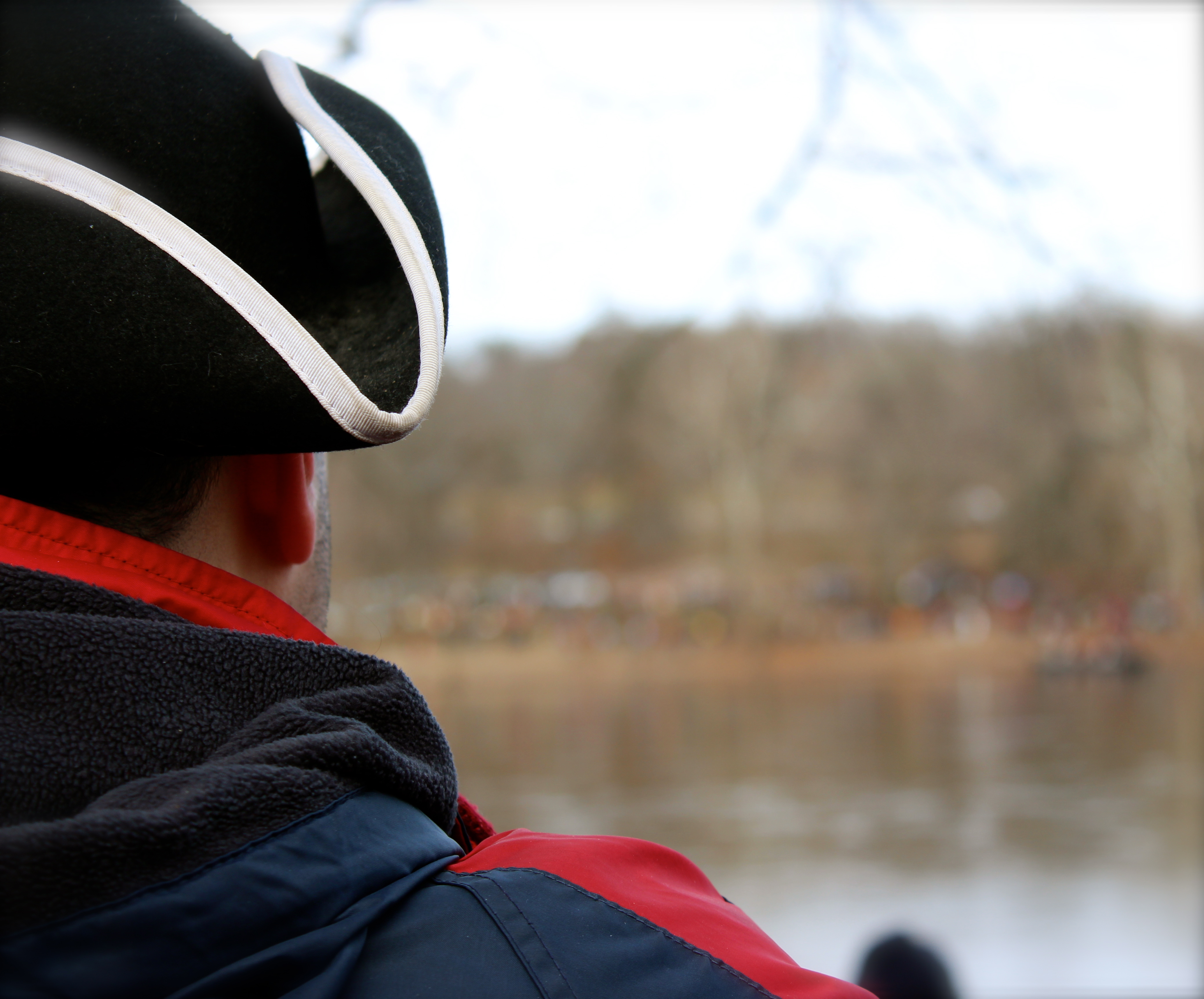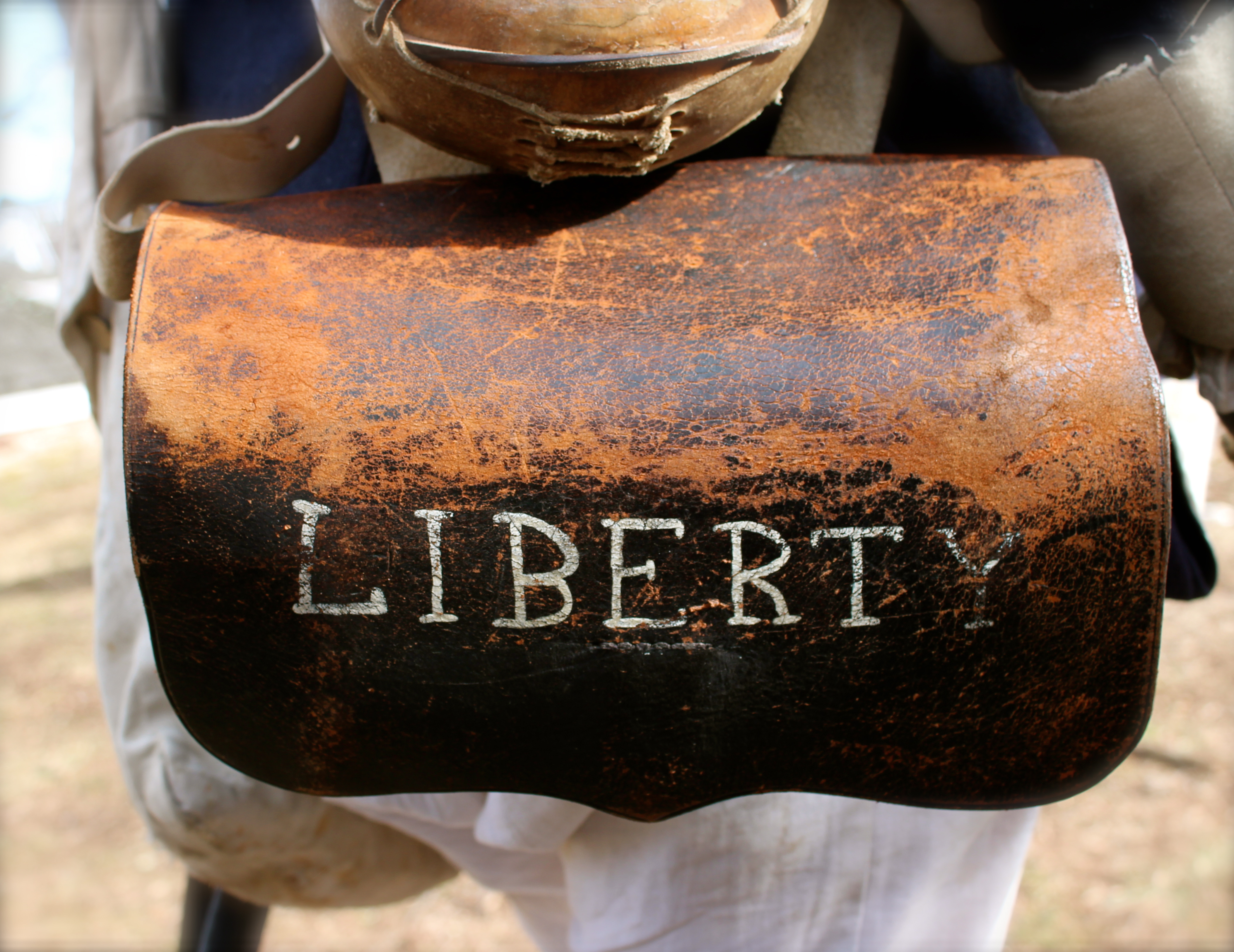We spent Christmas Day doing something completely different. We went to the 61st annual re-enactment of George Washington’s historical crossing of the Delaware River on Christmas night in December 1776. The area is now designated as Washington Crossing Historic Park.
As every American school child knows, George Washington and his troops were almost at the end of the line. The American Revolution was heading towards a disastrous finish within a year of the colonies declaring independence. The American militia had been soundly defeated in all the previous skirmishes by the much-better trained and well-equipped British army.
The Americans were frozen and starving in the Pennsylvania winter. The American troops were stationed in Newtown a few miles away from Washington Crossing. These photo shows Newtown in the snow in 2013 which should give you a good idea of how terrible conditions can get. I can’t imagine braving the snow without my Polartec, never mind being shoeless in the snow.
Many of Washington’s men just wanted to go home to their families because their period of enlistments were up. Washington gave them a rousing speech which included reading from Thomas Paine’s famous pamphlet On Common Sense.
These are the times that try men’s souls: The summer soldier and the sunshine patriot will, in this crisis, shrink from the service of his country; but he that stands by it now, deserves the love and thanks of man and woman…Tyranny, like hell, is not easily conquered; yet we have this consolation with us, that the harder the conflict, the more glorious the triumph.
Rousing stuff. Washington’s speech did the trick of convincing the American troops to engage in just one more battle before they finished their enlistment.
The American militia were a motley bunch of militia men with more courage than skill. We were told the average age was 19-20 years old because many of the older men were farmers who couldn’t leave their crops to fight in a war. Many troops wore their hunting gear as uniforms and a significant number were shoeless. They had guns (the Brown Bess) stolen from the British but mostly relied on tomahawks and lances to do damage.
Washington’s bold plan to attack on Christmas Day was completely unexpected by the British – no doubt they were eating Christmas pudding and sipping brandy, confident in the knowledge that they were winning. As Mr. N said, a Christmas attack would have been considered ‘just not cricket’.
Washington got his 2400 men, horses and equipment across the icy and choppy river on large flat-bottomed Durham boats. These Durham boats were regularly used to cart goods to the bustling port of Philadelphia. Then, they marched several miles to Trenton for the battle.
Here is a re-enactor sipping rum – the drink of the day. He told me he was 80 years old and had been participating in the re-enactment of the crossing for near 30 years.
Rum was a strong motivator for the American troops. No American lives were lost in the Battle of Trenton. Feeling jubilant and contrary to Washington orders, the American militia decided to partake in the British supplies of rum. Apparently, the crossing back across the river was much more chaotic with a lot of drunken men falling in the freezing water.
Washington’s decisive victory at Trenton helped shore up the American troops’ morale as well as providing them with equipment and supplies (not just rum!). The British had new-found respect for the ‘rebellious farmers’ conviction and spirit.
[youtube=https://www.youtube.com/watch?v=pz1fYlD6S4U&w=420&h=315]
I wish I could say my children were enthusiastic about learning history on Christmas Day. Mostly, they wanted to rush home and play with their presents. Mr. N and I thought it was a fabulous experience though.








